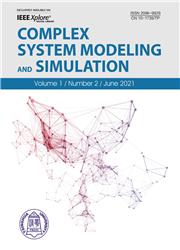Quantum-Inspired Distributed Memetic Algorithm
引用次数: 0
Abstract
This paper proposed a novel distributed memetic evolutionary model, where four modules distributed exploration, intensified exploitation, knowledge transfer, and evolutionary restart are coevolved to maximize their strengths and achieve superior global optimality. Distributed exploration evolves three independent populations by heterogenous operators. Intensified exploitation evolves an external elite archive in parallel with exploration to balance global and local searches. Knowledge transfer is based on a point-ring communication topology to share successful experiences among distinct search agents. Evolutionary restart adopts an adaptive perturbation strategy to control search diversity reasonably. Quantum computation is a newly emerging technique, which has powerful computing power and parallelized ability. Therefore, this paper further fuses quantum mechanisms into the proposed evolutionary model to build a new evolutionary algorithm, referred to as quantum-inspired distributed memetic algorithm (QDMA). In QDMA, individuals are represented by the quantum characteristics and evolved by the quantum-inspired evolutionary optimizers in the quantum hyperspace. The QDMA integrates the superiorities of distributed, memetic, and quantum evolution. Computational experiments are carried out to evaluate the superior performance of QDMA. The results demonstrate the effectiveness of special designs and show that QDMA has greater superiority compared to the compared state-of-the-art algorithms based on Wilcoxon's rank-sum test. The superiority is attributed not only to good cooperative coevolution of distributed memetic evolutionary model, but also to superior designs of each special component.量子启发的分布式模因算法
本文提出了一种新的分布式模因进化模型,该模型将分布式探索、强化开发、知识转移和进化重启四个模块协同进化,使其优势最大化,达到全局最优。分布式勘探通过异构操作演化出三个独立的种群。强化开发发展了一个外部精英档案,与探索并行,以平衡全球和本地搜索。知识传递基于点环通信拓扑结构,在不同的搜索代理之间共享成功经验。进化重启采用自适应摄动策略,合理控制搜索多样性。量子计算是一种新兴的计算技术,具有强大的计算能力和并行化能力。因此,本文进一步将量子机制融合到所提出的进化模型中,构建了一种新的进化算法,称为量子启发分布式模因算法(quantum-inspired distributed memetic algorithm, QDMA)。在QDMA中,个体由量子特征表示,并由量子启发的进化优化器在量子超空间中进化。QDMA集成了分布式、模因和量子进化的优点。计算实验验证了QDMA的优越性能。结果证明了特殊设计的有效性,并表明与基于Wilcoxon秩和检验的比较先进的算法相比,QDMA具有更大的优势。其优势不仅在于分布式模因进化模型具有良好的协同进化能力,还在于各特殊部件的设计优势。
本文章由计算机程序翻译,如有差异,请以英文原文为准。
求助全文
约1分钟内获得全文
求助全文

 求助内容:
求助内容: 应助结果提醒方式:
应助结果提醒方式:


